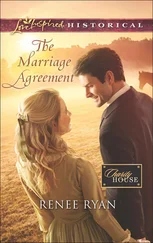Marah Ryan - The Bondwoman
Здесь есть возможность читать онлайн «Marah Ryan - The Bondwoman» — ознакомительный отрывок электронной книги совершенно бесплатно, а после прочтения отрывка купить полную версию. В некоторых случаях можно слушать аудио, скачать через торрент в формате fb2 и присутствует краткое содержание. Жанр: foreign_prose, на английском языке. Описание произведения, (предисловие) а так же отзывы посетителей доступны на портале библиотеки ЛибКат.
- Название:The Bondwoman
- Автор:
- Жанр:
- Год:неизвестен
- ISBN:нет данных
- Рейтинг книги:3 / 5. Голосов: 1
-
Избранное:Добавить в избранное
- Отзывы:
-
Ваша оценка:
- 60
- 1
- 2
- 3
- 4
- 5
The Bondwoman: краткое содержание, описание и аннотация
Предлагаем к чтению аннотацию, описание, краткое содержание или предисловие (зависит от того, что написал сам автор книги «The Bondwoman»). Если вы не нашли необходимую информацию о книге — напишите в комментариях, мы постараемся отыскать её.
The Bondwoman — читать онлайн ознакомительный отрывок
Ниже представлен текст книги, разбитый по страницам. Система сохранения места последней прочитанной страницы, позволяет с удобством читать онлайн бесплатно книгу «The Bondwoman», без необходимости каждый раз заново искать на чём Вы остановились. Поставьте закладку, и сможете в любой момент перейти на страницу, на которой закончили чтение.
Интервал:
Закладка:
“Hum! I fancy suitors have not been lacking. Her income is no trifle.”
“In our country a girl like that would need no income to insure her desirable suitors. She is the most fascinating creature, and so unconscious of her charms.”
Her son, who had been at a writing desk in the corner, laid down his pen and turned around.
“My imperfect following of your rapid French makes me understand at least that this is a serious case,” he said, teasingly. “Are you sure, mother, that she has not treated you to enchantment? I heard the same lady described a few days ago, and the picture drawn was that of an atheistical revolutionist, an unlovely and unlovable type.”
“Ah!” said the Countess Helene. “You also are opposed to beautiful machines that think.”
“I have never been accustomed to those whose thoughts follow such unpleasant lines, Madame,” he replied. “I have been taught to revere the woman whose foundation of life is the religion scorned by the lady you are discussing. A woman without that religion would be like a scentless blossom to me.”
The Countess smiled and raised her brows slightly. This severe young officer, her friend’s son, took himself and his tastes very seriously.
Looking at him she fancied she could detect both the hawk and the dove meeting in those clear, level eyes of his. Though youthful, she could see in him the steadiness of the only son–the head of the house–the protector and the adored of his mother and sister, who were good little women, flattering their men folks by their dependence. And from that picture the lady who was studying him passed on to the picture of the possible bride to whom he would some day fling his favors. She, also, must be adoring and domestic and devout. Her articles of faith must be as orthodox as his affection. He would love her, of course, but must do the thinking for the family.
Because the Lieutenant lacked the buoyant, adaptable French temperament of his mother, the Countess was inclined to be rather severe in her judgment of him. He was so young; so serious. She did not fancy young men except in the pages of romances; even when they had brains they appeared to her always over-weighted with the responsibility of them.
It is only after a man has left his boyhood in the distance that he can amuse a woman with airy nothings and make her feel that his words are only the froth on the edge of a current that is deep–deep!
Mrs. McVeigh, unconscious of the silent criticism being passed on her son, again poised a lance in defence of the stranger under discussion.
“It is absurd to call her atheistical,” she insisted; “would I be influenced by such a person? She is an enthusiast, student of many religions, possibly; but people should know her before they judge, and you, Kenneth, should see her before you credit their gossip. She is a beautiful, sympathetic child, oppressed too early with the seriousness of life.”
“At any rate, I see I shall never take you home heart whole,” he decided, and laughed as he gathered up letters he had been addressing and left the room.
“One could fancy your son making a tour of the world and coming back without a sentimental scratch,” said the Countess, after he had gone. “I have noticed him with women; perfectly gallant, interested and willing to please, but not a flutter of an eyelid out of form; not a tone of the voice that would flatter one. I am not sure but that the women are all the more anxious to claim such a man, the victory seems greater, yet it is more natural to find them reciprocal. Perhaps there is a betrothed somewhere to whom he has sworn allegiance in its most rigid form; is that the reason?”
Mrs. McVeigh smiled. She rather liked to think her son not so susceptible as Frenchmen pretended to be.
“I do not think there are any vows of allegiance,” she confessed; “but there is someone at home to whom we have assigned him since they were children.”
“Truly? But I fancied the parents did not arrange the affairs matrimonial in your country.”
“We do not; that is, not in a definite official way. Still, we are allowed our little preferences, and sometimes we can help or hinder in our own way. But this affair”–and she made a gesture towards the door of her son’s room, “this affair is in embryo yet.”
“Good settlements?”
“Oh, yes; the girl is quite an heiress and is the niece of his guardian–his guardian that was. Their estates join, and they have always been fond of each other; so you see we have reason for our hopes.”
“Excellent!” agreed her friend, “and to conclude, I am to suppose of course she is such a beauty that she blinds his eyes to all the charms arrayed before him here.”
“Well, we never thought of Gertrude as a beauty exactly; but she is remarkably good looking; all the Lorings are. I would have had her with me for this visit but that her uncle, with whom she lives, has been very ill for months. They, also, are of colonial French descent with, of course, the usual infusions of Anglo-Saxon and European blood supposed to constitute the new American.”
“The new–”
“Yes, you understand, we have yet the original American in our land–the Indian.”
“Ah!” with a gesture of repulsion; “the savages; and then, the Africans! How brave you are, Claire. I should die of fear.”
Mrs. McVeigh only smiled. She was searching through a portfolio, and finally extracted a photograph from other pictures and papers.
“That is Miss Loring,” she said, and handed it to the Countess, who examined it with critical interest.
“Very pretty,” she decided, “an English type. If she were a Parisian, a modiste and hairdresser would do wonders towards developing her into a beauty of the very rare, very fair order. She suggests a slender white lily.”
“Yes, Gertrude is a little like that,” assented Mrs. McVeigh, and placed the photograph on the mantel beside that of the very charming, piquant face of a girl resembling Mrs. McVeigh. It was a picture of her daughter.
“Only six weeks since I left her; yet, it seems like a year,” she sighed; and Fitzgerald Delaven, who had entered from the Lieutenant’s room, sighed ponderously at her elbow.
“Well, Dr. Delaven, why are you blowing like a bellows?” she asked, with a smile of good nature.
“Out of sympathy, my lady,” replied the young Irishman.
“Now, how can you possibly sympathize understandingly with a mother’s feelings, you Irish pretender?” she asked with a note of fondness in her tones. “I sigh because I have not seen my little Evilena for six weeks.”
“And I because I am never likely to see that lovely duplicate of yourself at all, at all! Ah, you laugh! But have you not noticed that each time I am allowed to enter this room I pay my devotions to that particular corner of the mantel?”
“A very modern shrine,” observed the Countess; “and why should you not see the original of the picture some day. It is not so far to America.”
“True enough, but I’ll be delving for two years here in the medical college,” he replied with lamentation in his tone. “And after that I’ll be delving for a practice in some modest corner of the world, and all the time that little lady will be counting her lovers on every one of her white fingers, and, finally, will name the wedding day for a better boy than myself, och hone! och hone!”
Both the ladies laughed over his comical despair, and when Lieutenant McVeigh entered and heard the cause of it he set things right by promising to speak a good word for Delaven to the little girl across the water.
“You are a trump, Lieutenant; sorry am I that I have no sister with which to return the compliment.”
“She might be in the way,” suggested the Countess, and made a gesture towards the other picture. “You perceive; our friend need not come abroad for charming faces; those at home are worth courting.”
Читать дальшеИнтервал:
Закладка:
Похожие книги на «The Bondwoman»
Представляем Вашему вниманию похожие книги на «The Bondwoman» списком для выбора. Мы отобрали схожую по названию и смыслу литературу в надежде предоставить читателям больше вариантов отыскать новые, интересные, ещё непрочитанные произведения.
Обсуждение, отзывы о книге «The Bondwoman» и просто собственные мнения читателей. Оставьте ваши комментарии, напишите, что Вы думаете о произведении, его смысле или главных героях. Укажите что конкретно понравилось, а что нет, и почему Вы так считаете.












